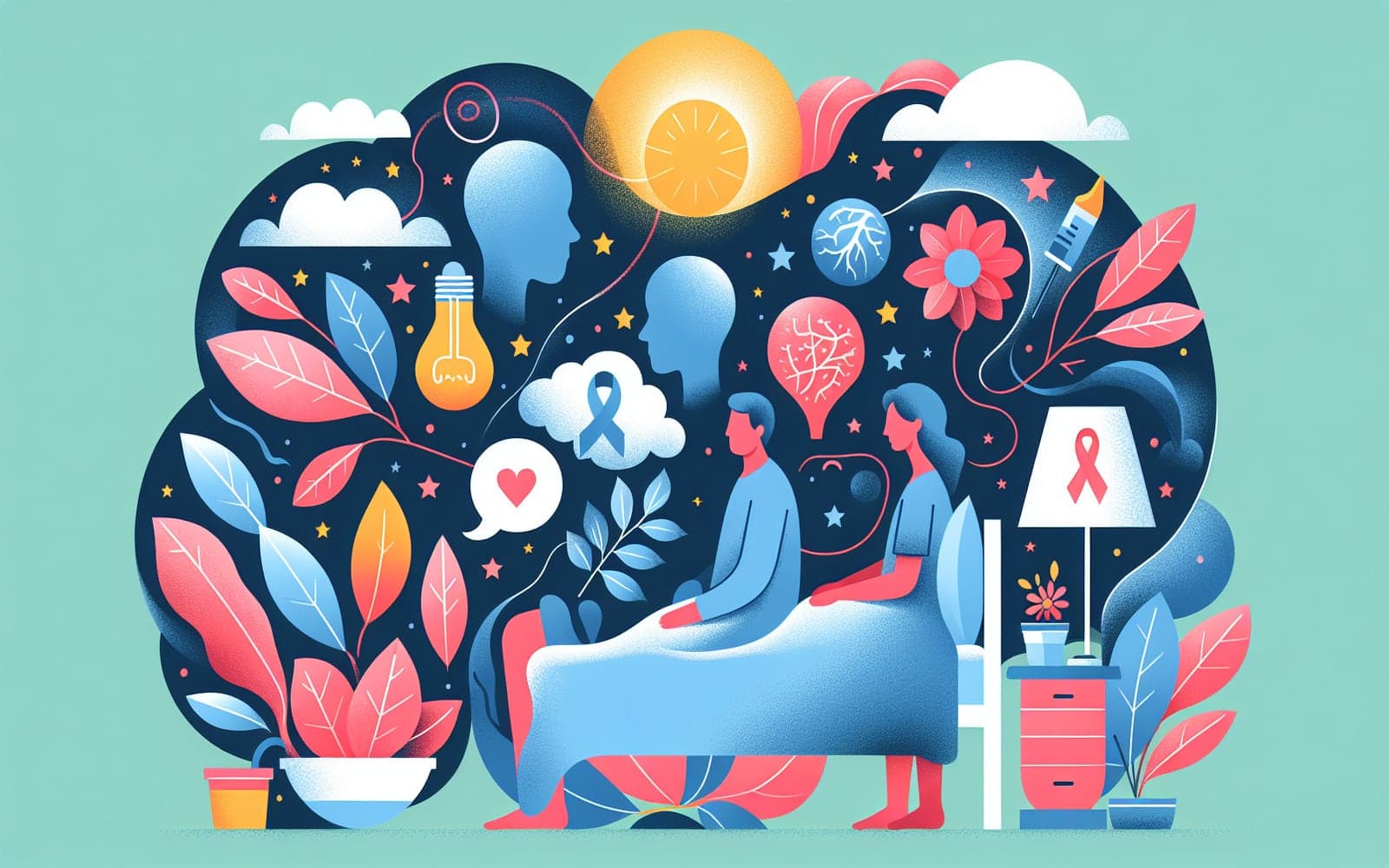Could Your Night Sweats Be a Sign of Lymphoma?
Published: Jan 07, 2024
Night sweats are often associated with lymphoma, a type of blood cancer. Understanding this connection could lead to earlier diagnosis and better outcomes.
Contents
What is Lymphoma?
Lymphoma is a cancer that starts in the lymphatic system, a part of your body's germ-fighting network. There are two main types: Hodgkin lymphoma and non-Hodgkin lymphoma. Both can cause night sweats, but they're not the only symptoms to watch for.
The Lymphoma-Night Sweat Connection
Night sweats are one of the classic 'B symptoms' of lymphoma, along with unexplained fever and weight loss. These sweats are often described as 'drenching' - severe enough to soak through pajamas and bedding. While not everyone with lymphoma experiences night sweats, they're a common early sign that shouldn't be ignored.

Other Lymphoma Red Flags
Besides night sweats, lymphoma can cause swollen lymph nodes, fatigue, and itching. Some people with Hodgkin lymphoma experience pain in lymph nodes after drinking alcohol. If you're experiencing these symptoms along with night sweats, it's crucial to see a doctor for evaluation.
Frequently Asked Questions
No, many conditions can cause night sweats, but persistent sweats warrant evaluation.
Lymphoma accounts for about 4% of all cancers diagnosed in the US.
Many lymphomas are treatable, with some types having high cure rates.
No, not all patients have night sweats, but they're a common symptom.
Key Takeaways
While night sweats alone don't necessarily mean you have lymphoma, they're an important symptom that shouldn't be ignored, especially when combined with other warning signs.
Concerned about persistent night sweats? Discuss your symptoms with Doctronic, the AI doctor, for personalized guidance on next steps.Related Articles
References
Kenemans P. Menopause, HRT and menopausal symptoms. J Epidemiol Biostat 1999; 4:141.
Miller LG, Asch SM, Yu EI, et al. A population-based survey of tuberculosis symptoms: how atypical are atypical presentations? Clin Infect Dis 2000; 30:293.
Always discuss health information with your healthcare provider.

